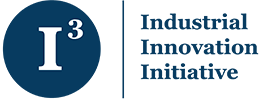With the passage of the Infrastructure Investment and Jobs Act (IIJA), the US Department of Energy (DOE) and its associated offices have made formal requests for information (RFIs) to help build an understanding of how to best implement the IIJA’s various provisions. The Industrial Innovation Initiative (I3) submitted responses to four of the relevant RFIs. The responses provide industry perspective and support Initiative priorities, including deep decarbonization, a thriving US economy, a just transition for US workers, and environmental justice.
CARBON MANAGEMENT
Responding to DOE’s Deployment Opportunities for Carbon Reduction and Removal Technologies RFI, the Initiative underscored prioritizing carbon management solutions (carbon capture, utilization, and storage) for hard-to-abate sectors, such as industry. Carbon management is especially critical for decarbonizing industrial process emissions, which make up approximately 30 percent of industrial emissions overall. There are presently about 60 industrial sector carbon capture projects underway, including projects in the hard-to-decarbonize steel, cement, and petrochemical sectors.
INDUSTRIAL DECARBONIZATION
Responding to the DOE and Advanced Manufacturing Office’s RFI on Industrial Decarbonization Priorities, I3 developed a cross-cutting response. The response emphasizes the value of supporting emerging technologies like carbon management and clean hydrogen solutions and established technologies like energy efficiency and industrial electrification. The Initiative recommends financial incentives, clean procurement policies, grid and infrastructure enhancement, and workforce development measures to support and accelerate industrial decarbonization in the US.
CLEAN HYDROGEN
Responding to DOE’s Regional Clean Hydrogen Hubs Implementation Strategy RFI, the Initiative outlined the regional opportunities for clean hydrogen hub development. Hub considerations include existing industrial facilities, clean energy resources, and existing or needed transportation and storage infrastructure. The response calls for a holistic definition and means of quantifying clean hydrogen, inclusive of upstream emissions. It also underscores the need for financial mechanisms to defray costs and spur market adoption. Furthermore, the response emphasizes the need for workforce development and community engagement when developing hydrogen hub projects.
Responding to the DOE and Hydrogen Fuel Cell Technologies Office’s Clean Hydrogen Manufacturing, Recycling, and Electrolysis RFI, the Initiative focused primarily on the need to support domestic supply chains and the American workforce dependent upon upstream hydrogen jobs; the need to reduce production costs and make quantifiable progress toward the federal $2/kilogram of hydrogen goal; industry’s value as a priority end user; and the need to consider environmental justice, diversity, equity, and inclusion in the development of clean hydrogen projects.
STAY UP TO DATE
The information contained within these responses represents a small fraction of the collective knowledge and expertise of our participants. I3 will continue to seek out opportunities for formal input and comment in partnership with the DOE and its associated offices. Keep up to date with I3 news by signing up for our monthly newsletter. For more information on I3 or to get involved, contact David Soll at dsoll@gpisd.net.

